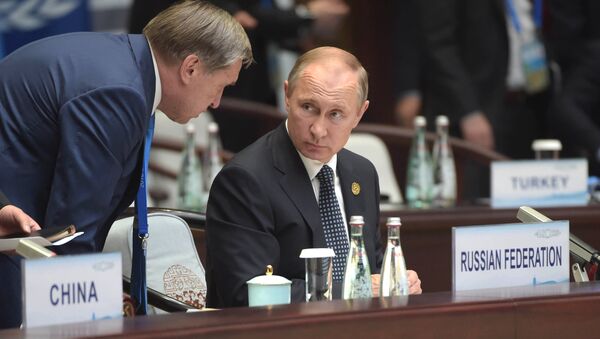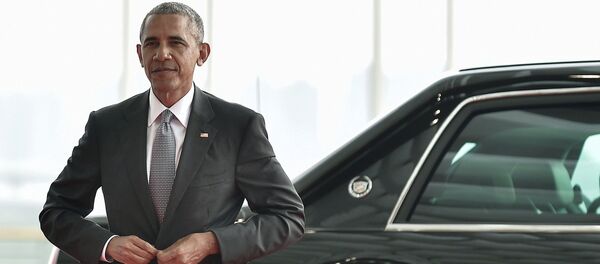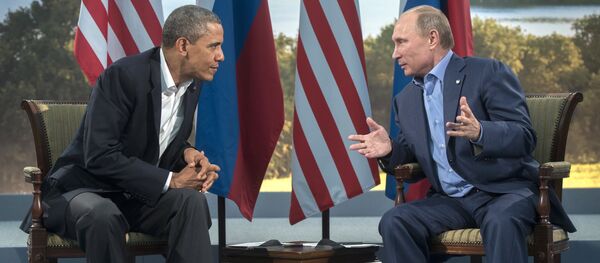During the summit, which took place in the Chinese city of Hangzhou between September 3 and September 5, Putin met the leaders of the United States, Germany, France, the UK, Turkey, China, Argentina, Egypt, Bahrain and Saudi Arabia.
On Putin's meeting with US counterpart Barack Obama, Kremlin spokesman Dmitry Peskov told reporters that the talks lasted "longer than planned", with Syria and Ukraine being discussed first and foremost.
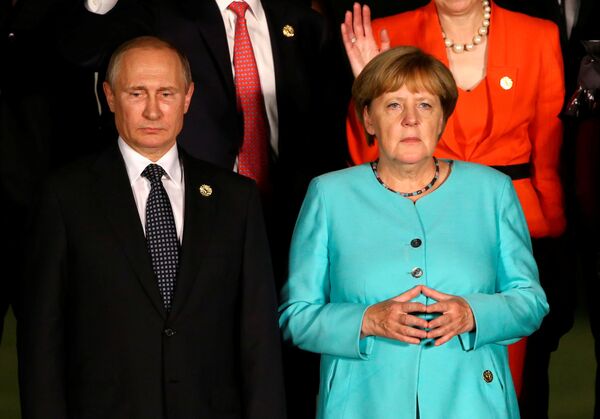
Nikita Danyuk, Deputy Director of the Institute of Strategic Studies and Forecasts at Peoples' Friendship University of Russia, told Sputnik that Russia's American partners are unlikely to change their strategic course on the Syrian settlement now that Barack is already being called a "lame duck".
"With the new US Administration due to come to power, Washington may change its tactics on Syria. But strategically, they are not interested in the Syrian crisis being resolved in the nearest future," he said.
With regard to the issues of geopolitics and security, the Hangzhou summit can be compared with the G20 summit in Australia in 2014, when Western media speculated on Putin's political isolation during the gathering, Danyuk recalled.
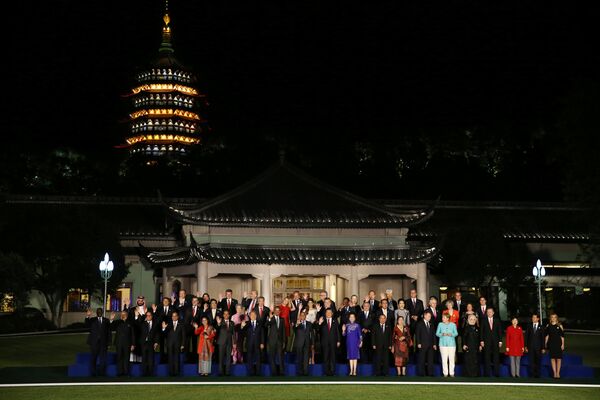
Two years later, we see the leading nations of the world, including the US, the UK, Germany, France and Turkey, signaling their readiness to develop a dialogue with Russia, according to him.
"They know full well that any global problem related to the economy, security and terrorism can only be resolved with Russia's participation. This summit should be seen as another step, another signal that Russia remains a very important player in the global arena and that it's impossible to resolve pressing internationals issues without consulting Moscow," he said.
He was echoed by Armen Oganesyan, chief editor of the international affairs magazine Mezhdunarodnaya Zhizhn, who said that in Hangzhou, "the G20 countries drew a thick line under all speculations about the necessity of isolating Russia."
Touching upon the Putin-Obama meeting, Oganesyan suggested that despite Obama's desire to reach a consensus on the Syrian issue, he first and foremost sought to play up to Democratic Party voters ahead of the presidential elections in the US.
Alexander Rahr, scientific director of the Russian-German Forum, for his part, said that the G20 countries "demonstrated a new level of communication and relations with Russia" during the Hangzhou summit.
"They show more and more respect toward Russia, which underwent sanctions and is building relations with Europe. Everyone understands that it's irrelevant to return back to the Cold War era," he said.
On Sunday, Putin met UK Prime Minister Theresa May on the sidelines of the G20 summit.
Also on the sidelines of the summit, Putin met his Turkish counterpart Recep Tayyip Erdogan to discuss the crisis in Syria as well as the continued process towards normalizing bilateral ties between the two countries at a time when Ankara finds itself increasingly isolated from Washington and Brussels.
Additionally, Putin sat down with German Chancellor Angela Merkel, the Presidents of France, China, Argentina and Egypt, as well as the King of Bahrain and Saudi Arabia's Deputy Crown Prince.

